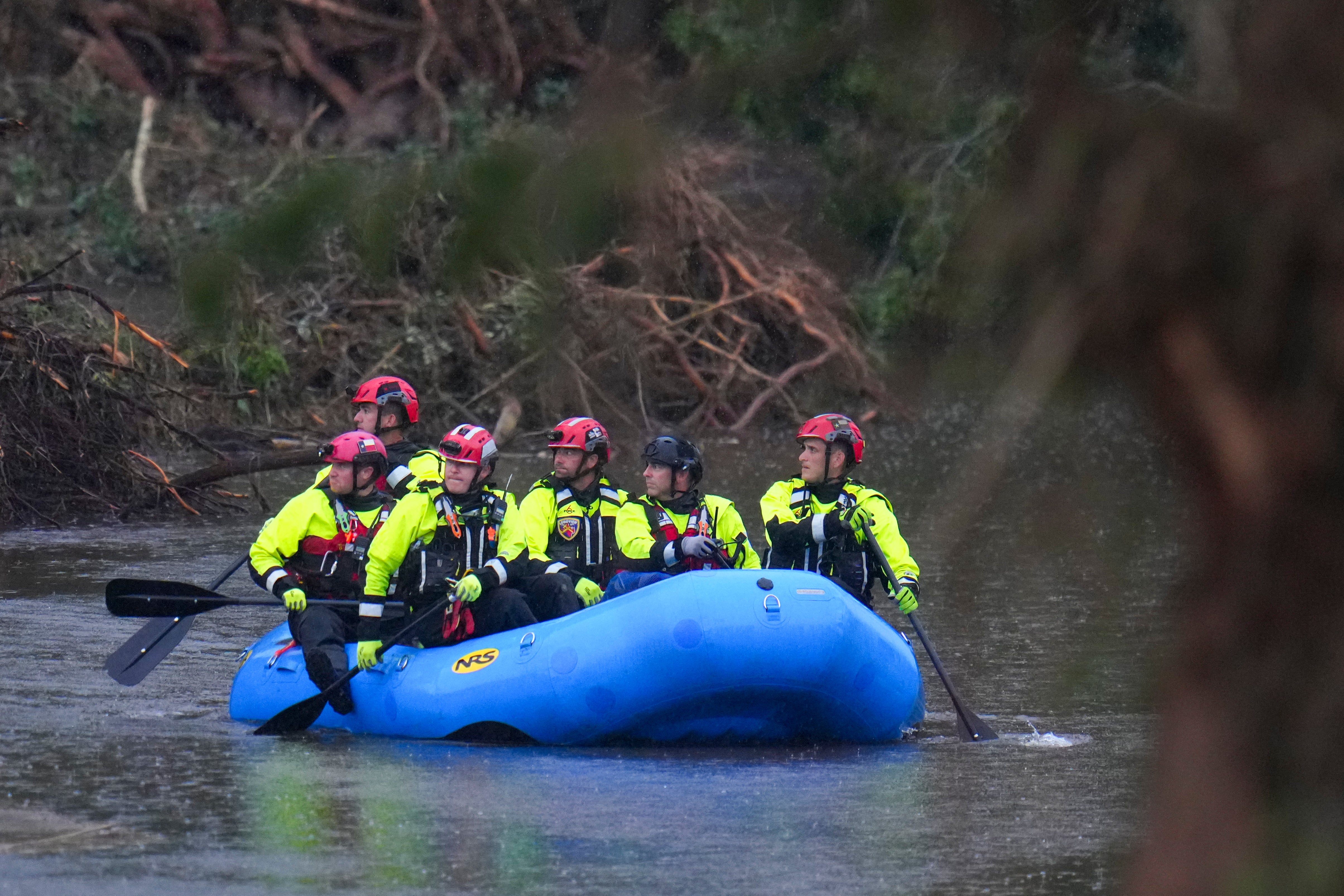The Federal Emergency Management Agency has sent a fraction of the personnel to the Texas flood catastrophe that the state has deployed to manage the disaster.
FEMA was deployed in Texas after flash floods devastated the state last week, leaving at least 170 missing and more than 110 dead.
An internal memo, obtained by the New York Times, shows that FEMA has sent roughly 70 search-and-rescue workers to Kerr County, the hardest hit area, five days into the disaster. FEMA sent a dozen more to Austin, and an additional 40 people are on standby.
By comparison, Texas has deployed over 1,750 personnel, and more than 975 vehicles and equipment assets as of Monday, according to the Texas Division of Emergency Management.
Homeland Security Secretary Kristi Noem, whose department oversees FEMA, said Tuesday that the federal government doesn’t “manage these disasters. The state does. We come in and support them, and that’s exactly what we did here in this situation.”
Justin Knighten, FEMA’s director of external affairs during the Biden administration, also told the Associated Press that the agency’s role is to bolster the state’s emergency response: “The state is in the lead. FEMA is invited into the state to support.”
Still, that support seems to have diminished since last year as President Donald Trump threatens to wind down the agency.
During the last major U.S. hurricane, Hurricane Helene in September 2024, the Biden administration deployed over 1,000 FEMA workers to Southeastern states, five days into the disaster.
It was not immediately clear why the federal response to the Texas floods was so much smaller. The Independent has contacted FEMA for comment.
In June, President Trump threatened to phase out FEMA. “We want to wean off of FEMA, and we want to bring it down to the state level,” Trump said. “A governor should be able to handle it, and frankly, if they can’t handle it, the aftermath, then maybe they shouldn’t be governor.”
Maddie Sloan, director of the nonprofit Texas Appleseed, underscored the importance of FEMA’s role in large-scale disasters.
“It’s true that Texas is very capable, but I think it’s something that people forget that FEMA pays for a lot of state and local emergency capacity,” Sloan told the AP.

The fate of FEMA remains up in the air.
The president has established a council to assess what’s next for the agency with its next meeting scheduled for Wednesday afternoon.
At a council meeting in May, Texas Gov. Greg Abbott criticized FEMA, calling it “slow and clunky and doesn't solve the needs of those who need it the most.” He added: "States have proven that we can move more nimbly, more swiftly, more effectively."
Experts, though, have warned that without FEMA, disaster management will become much more complicated. “Without FEMA, a governor or a state has to be calling around and have a Rolodex of the whole federal government to call and try and figure out what support they can get,” Michael Coen, FEMA chief of staff in the Obama and Biden administrations, told AP.

The management becomes even more difficult for smaller states. “If a state like Texas asks for federal assistance within two days, the smaller states that are less capable don’t stand a chance,” Jeremy Edwards, FEMA’s deputy director of public affairs during the Biden administration, told the outlet.
Earlier this week, when asked about Trump’s plans to wind down FEMA, Press Secretary Karoline Leavitt dodged the question.
“The president wants to ensure American citizens always have what they need during times of need,” she said. “Whether that assistance comes from states or the federal government, that is a policy discussion that will continue.”
Focus on first responders' mental health grows as death toll rises in flood-ravaged Texas
Trump appointees have ties to companies that stand to benefit from privatizing weather forecasts
Musk has lost $20B - and his investors have lost $100B more - amid Trump feud
Trump appointees have ties to companies that stand to benefit from privatizing weather forecasts
Chipmaker Nvidia becomes most valuable company in the world at $4 trillion







